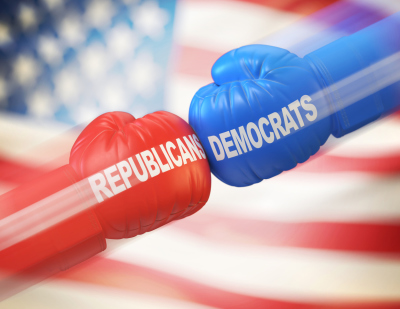On Nov. 6, we should love our neighbor

A chorus of voices have been telling us, as Christians, who we should vote for. I am not here to add to that chorus. Instead, I want to talk about something less discussed, but perhaps even more consequential: how we should conduct ourselves on Nov. 6.
I think the Bible offers a very clear answer. In Matthew 5:44, Jesus proclaims, "But I tell you, love your enemies and pray for those who persecute you." In a better world, of course, we would not see our political opponents as our enemies; we would see them as our neighbors, as good people with whom we happen to disagree. But no matter how we see them, the commandment to love them is clear.
What does it mean to love our fellow Americans across the aisle, be they neighbors or enemies? It does not mean that we have to agree with them on every issue. It does not mean that we have to compromise our convictions or move towards the messy middle. Democracy relies on vibrant debate between people who disagree.
It also doesn't mean that we have to tolerate abuse and let go of our boundaries. It does not mean letting partisans across the aisle bully or intimidate us, and simply going back for more. Sometimes, holding boundaries is necessary. If someone insults and attacks you and your family for the crime of disagreeing with them politically, then setting a boundary can be very healthy.
Instead, loving those across the aisle simply means this: in all our treatment of them, we should recognize that they are made in God's image just as we are. God loves our liberal niece or our conservative uncle just as much as He loves us.
So how do we do this? Matthew 5:44 is a hard word to live out, but it can help to see our political opponents accurately. Most Americans across the political spectrum are angry and scared. Over three-quarters of respondents on both sides agree that members of the other party represent a "clear and present danger" to our country. Over 60% of us believe that our democracy is in danger if the wrong side wins on Tuesday.
With these numbers in mind, we can see the rage and the fear of folks across the aisle for the pain that it truly is. And when we see our brother or our sister in pain, we can try to minister to them. We can see them, not as enemy soldiers, but as scared and suffering human beings who will benefit more from our outstretched hand than from our raised fist.
What are the benefits of this approach? For one thing, it can help us to knit our families back together. So many relationships are frayed or broken over politics today. But when we truly love our family members across the aisle, we can work to rebuild frayed bridges (or, at least, not burn them to the ground).
In the same way, loving those across the aisle can help us to rebuild our sense of community. The American community has been hollowed out, and the resulting atomistic individualism is not good for our souls. If we're serious about rebuilding this community, then we'll need to extend the hand of fellowship to people who don't see the world the way we do.
Finally, choosing to love our fellow Americans across the aisle can strengthen our democracy. A century and a half ago, on the eve of the Civil War, Abraham Lincoln quoted another Bible verse: "A house divided against itself cannot stand" (Mark 3:25).
He was right. Our strength comes from our unity: unity not of political ideas, but of vision. Our strength as a country has always been in a diverse group of people willing to work together towards a shared goal. If we continue down the path of hating our political opponents, we will tear our country apart at the seams.
Let's not let that happen.
Julian Adorney is a freelance author and a member of the Braver Angels media team. His work has appeared in The Washington Examiner (where he's a paid columnist), Quillette, National Review, and The Federalist. He writes about depolarization, spiritual formation, and rebuilding the American community.





















